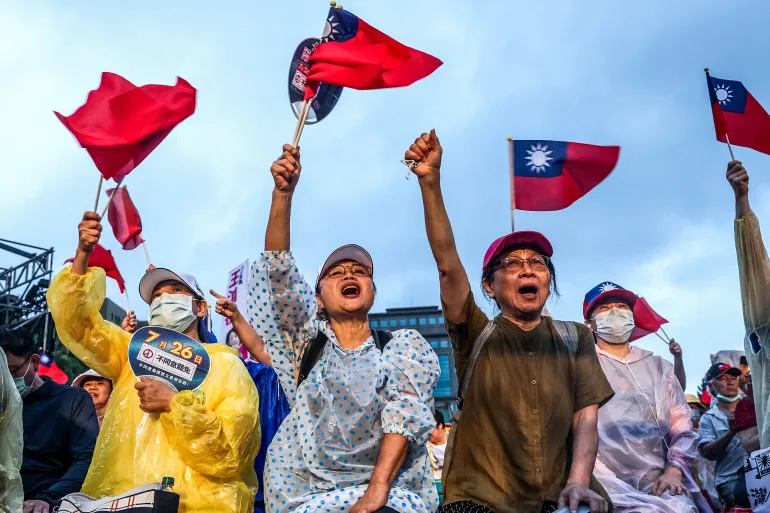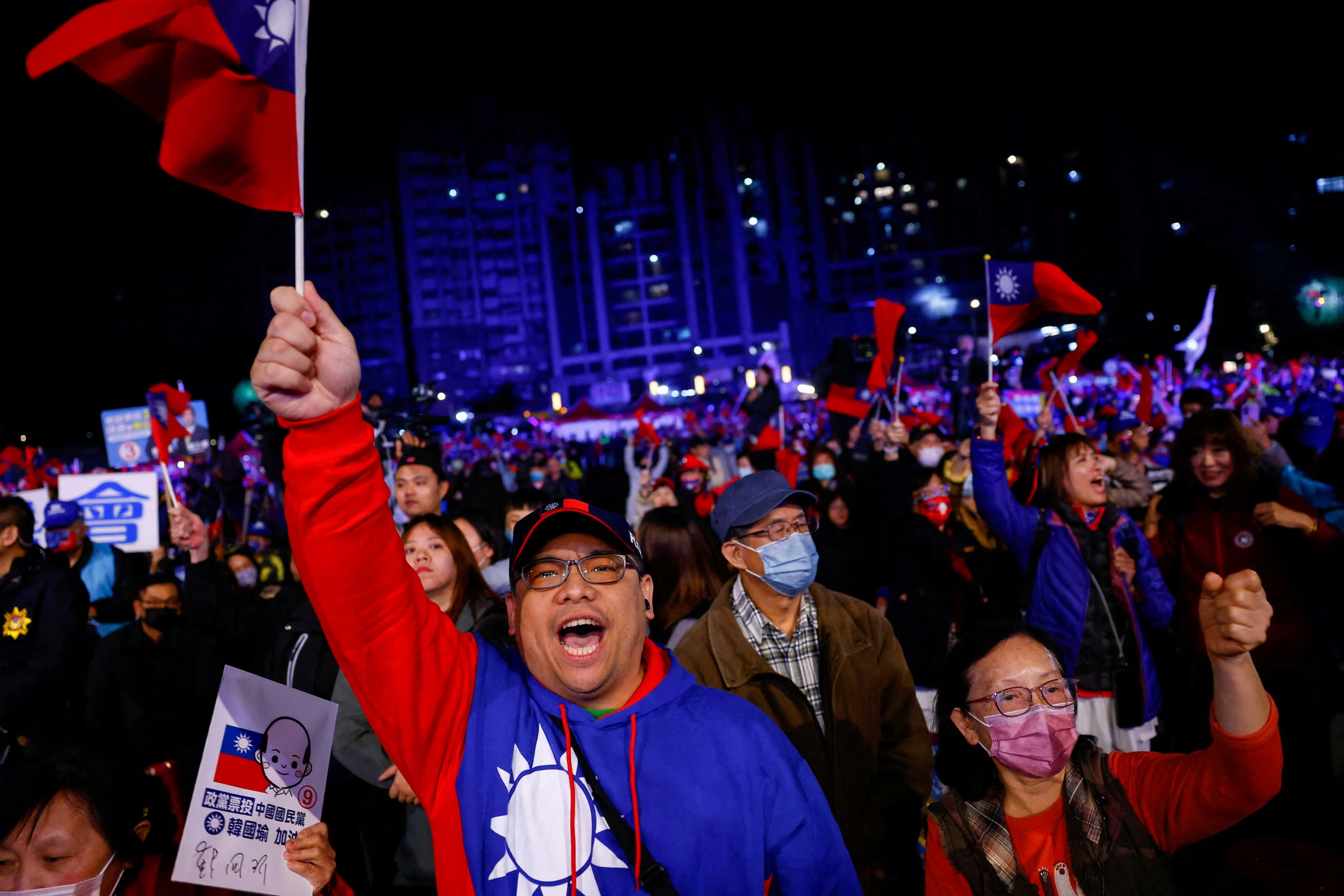Taiwanese voters on Saturday rejected an attempt to recall 24 opposition lawmakers, dealing a significant blow to President Lai Ching-te’s Democratic Progressive Party (DPP) and its hopes of gaining control of parliament.
Civic groups, aligned with the ruling DPP, had pushed to unseat members of the main opposition Kuomintang (KMT) party, accusing them of collaborating with China.
The KMT, which advocates for closer ties with Beijing, currently controls parliament with the support of the Taiwan People’s Party (TPP). It condemned the recall effort as an unprecedented power grab by the DPP.
The Central Election Commission’s official count, released hours after polls closed, confirmed that none of the recall attempts were successful.
While recall elections for seven additional KMT lawmakers are scheduled for August 23, the DPP needs at least 12 KMT lawmakers ousted to temporarily secure a parliamentary majority.
KMT chairman Eric Chu declared the “political farce” over, urging President Lai to “sincerely apologise” and “stop thinking about political infighting,” arguing that no party should resort to “vicious recall” after an election loss.
DPP Secretary-General Lin Yu-chang stated the party “humbly” accepts the results, emphasising that the election should not be seen merely as a partisan victory or defeat and vowing to “reflect more prudently on society’s response.”
Public opinion has been divided over the recalls, a legal mechanism allowing voters to remove elected officials before their terms end.
The campaign against KMT lawmakers has dominated political discourse, news headlines, and social media for months.
Conversely, a KMT-led attempt to recall DPP lawmakers failed to meet the necessary legal threshold.
Lev Nachman, a political science professor at National Taiwan University, commented that the outcome signals voters are comfortable with their 2024 choices and that the KMT will feel “very empowered.”
Political Tensions and Beijing’s Shadow
President Lai, a staunch defender of Taiwan’s sovereignty and a figure Beijing strongly dislikes, won the 2024 presidential election, but his DPP lost its legislative majority.

Since then, the KMT and TPP have collaborated to obstruct Lai’s agenda, including cutting or freezing government budget allocations. This political gridlock has led to contentious opposition bills, like attempts to expand parliamentary powers, resulting in legislative brawls and large street protests.
Even if the DPP had gained temporary control, analysts suggested it would have struggled to secure the six additional seats needed in by-elections to cement its dominance.
In response to Saturday’s results, President Lai called for acceptance and unity, though political analyst Wen-Ti Sung told AFP that the “era of hyper partisanship is not going to end anytime soon,” possibly worsening before it improves. Sung also suggested China would be “exhilarated” by the recall’s failure.
Political expert James Yifan Chen suggested the vote indicates Taiwanese are “tired of self-destructive political struggle and purges,” viewing the outcome as a “vote of no confidence in President Lai,” rather than solely a KMT victory.
Taiwan’s politics are known for their rough nature, but analysts note a dramatic deterioration in the atmosphere over the past 18 months, marked by heated rhetoric from both sides.
Beijing’s influence loomed large over the vote, with Taipei warning of “visible evidence” of Chinese interference.
Critics are concerned about Chinese influence on the KMT due to its ties with Beijing and frequent visits by its lawmakers to China.
However, the KMT denies being beholden to Beijing, insisting that dialogue with China is essential for peace across the Taiwan Strait.
Communist China has never governed Taiwan but claims the self-ruled island as its territory, threatening to use force to bring it under its control.


 Trending
Trending 
